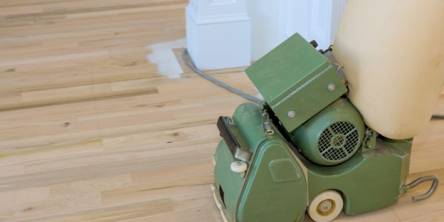3 Common Misconceptions About Renting a Property

Moving out of the family home and deciding to live on your own can be a huge step in anyone's life. From packing up your belongings and going apartment hunting, becoming a tenant can be quite stressful sometimes. Nevertheless, landlords do not have an easy job either. As a matter of fact, rental laws and extensive tenant rights vary from city to city. As we debunk three common misconceptions about renting property, delve into each topic to learn more about the realities and gain a clearer perspective on making informed decisions in the rental market.
1. Students make terrible tenants
The number one most common myth when dealing with renting a property concerns students and whether they are secure tenants or not. As a matter of fact, a lot of landlords do not like it when a potential tenant who is a student shows up. This is due to the fact that students are considered to be unreliable and a hassle to deal with. The truth is that most students look for an apartment in the city that is close to their university. Most of the times, a lot of students need a place to stay only for a short amount of time. Nevertheless, this is not always the case. Frequently, if the student has a lengthy degree, he or she will look for an apartment for long-term. An important thing to consider when dealing with a student tenant is the fact that the parents probably have a huge influence on the whole process of searching for a suitable property. Because of this, landlords should focus on meeting the expectations of the parents and make sure that they invest in a property that is well kept. Even though student tenants usually get a bad rep for being irresponsible, it is important to remember that a lot of older professional workers can behave in an even worse manner. For maximum safety, the landlord should make a thorough inventory at the very start of the tenancy. This way, the property is fully protected against theft and damage.

2. Landlords can evict the tenant for ANY reason
At the very beginning of any tenancy, it is important to make sure that there is an agreement with all the rights and responsibilities a future tenant needs to stick to. Frequently, new renters get so excited about finally finding a suitable apartment and getting to move in without carefully considering all the details that can be found in the lease agreement. Because of this, the very first step after finding the perfect apartment is sitting down with the landlord and going through all the clauses of the rental agreement. Only after signing it can the tenant be sure that there will be no conflicts in the future. For expert advice, it is recommended that one consults Priority Real Estate. This company can help landlords find suitable tenants as well as provide other services for various real estate needs. Some tenants who are unaware of their rights live in the fear that the landlord will pop up and decide to evict them for no reason at all. Also, a tenant simply cannot come back to the apartment whilst finding the locks changed and their stuff was thrown out on the street. Without sufficient evidence, the landlord does not have the power to evict the tenant in such a manner. Nevertheless, the landlord can act if the tenant causes serious problems which are stated in the signed lease. Due to this fact, it is important that the tenant respects all the points stated in the agreement.
3. Landlords are responsible for ALL repairs and maintenance
Most inexperienced tenants think that every single repair should be the landlord's responsibility. Even though it is true that the main person who should deal with issues such as plumbing, pest control, and noise complaints is the landlord, a lot of the time the tenant needs to fix problems alone. Tenants should take care of routine things such as changing light bulbs and filters. Also, tenants should note that if the damage is serious, such as a hole in the wall, he or she could be facing lawsuits. In order to skip these serious allegations, it is important that the tenant remembers all the points in the signed lease and respects the landlord's wishes. On the other hand, if the issue is, for example, cockroach infestation, then the very first thing that one should do is notify the landlord. The landlord's job is to call up pest control and get rid of the problem. A lot of the time, landlords do regular routine check-ups to make sure everything is in order. Another thing to keep in mind is that the landlord can not pop up without any prior notice. The landlord needs to notify the tenant at least 24 hours before stopping by.

In summary, before moving into the perfect apartment, it is important to sit down with the landlord and go through all the rules and guidelines that the lease states. By respecting the agreement, there are not going to be any issues during the tenancy. Have fun apartment hunting!
Similar Articles
As winter settles in and temperatures drop, families across the country brace themselves for the inevitable spike in energy bills.
Wooden floors have long been the subject of admiration for their classic beauty, natural warmth, and strength.
When it comes to giving your home a fresh coat of paint, most homeowners focus on choosing the perfect color and finish.
The holiday season transforms neighbourhoods into glowing wonderlands, but today's homeowners are moving beyond the traditional approach of simply stringing lights wherever they fit.
City homes face a constant challenge around outdoor space. Gardens are small or nonexistent, balconies are narrow, and any outdoor area feels precious.
Anyone who's worked in a commercial kitchen knows they operate with an efficiency that home kitchens rarely match.
When you want to transform your home with a complete makeover, you must find the best ways to save money. Let's check some cost-saving tips for renovating.
Handrails are one of the few things that merge safety, fashion, and structural importance in a home most naturally when the home is being either designed or renovated.
Cabinets play a vital role in any home, combining function, organization, and aesthetic appeal. Whether in the kitchen, bathroom, or living area, cabinetry defines the layout, storage capacity, and overall look of a space.









